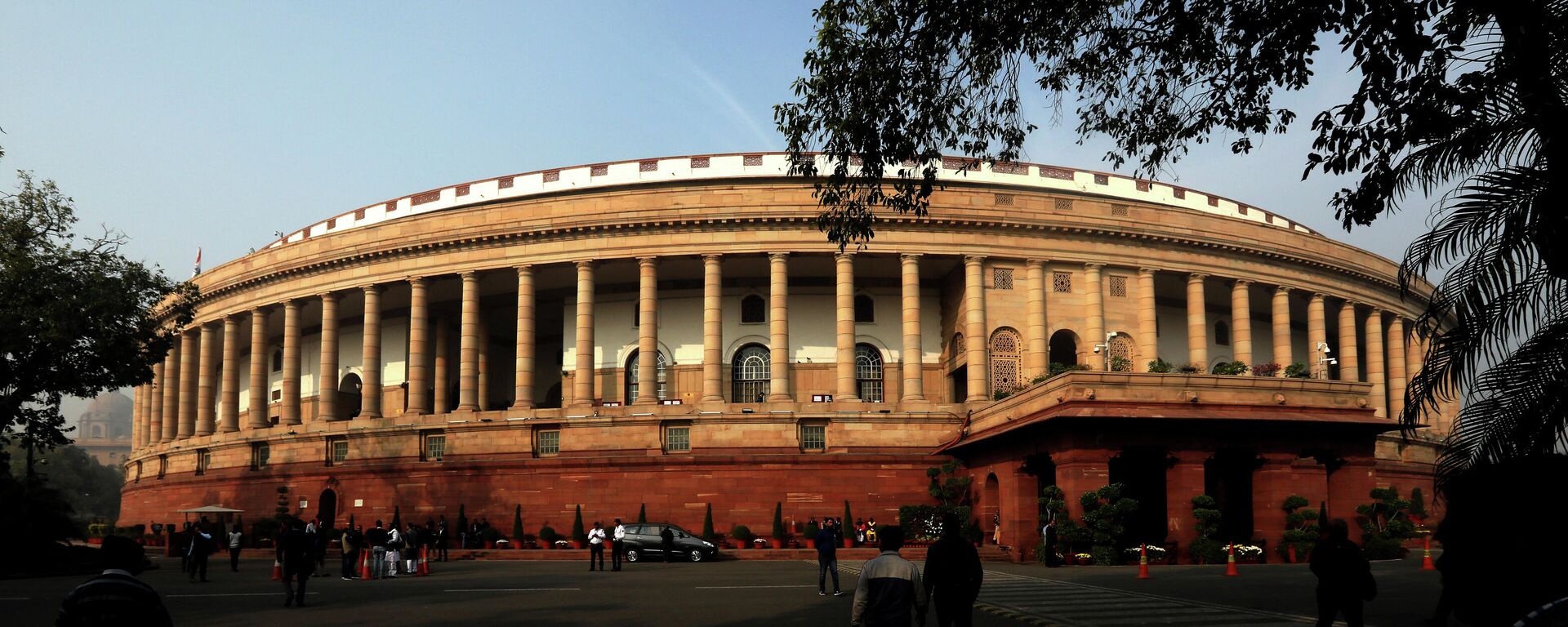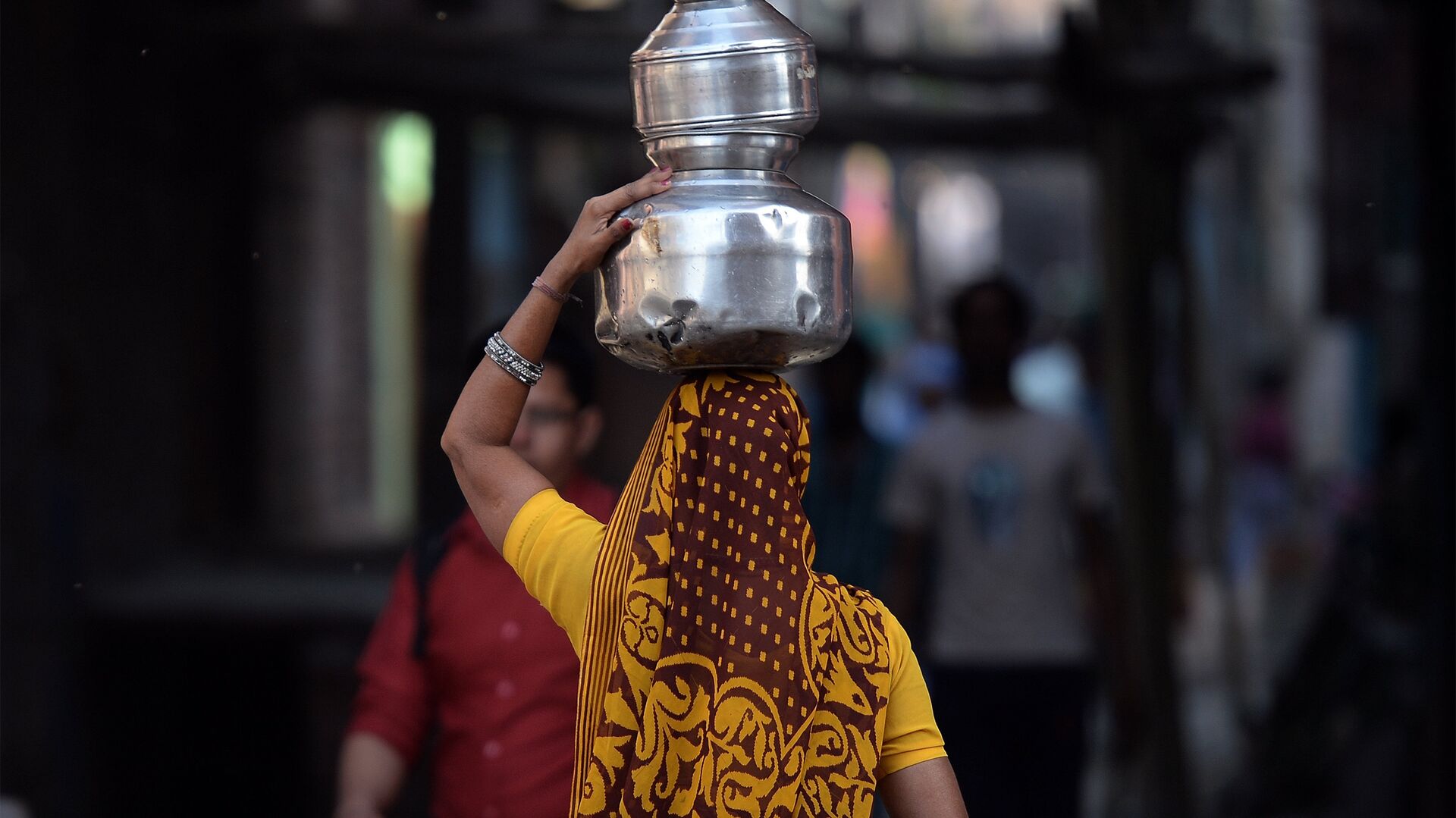https://sputnikglobe.com/20221118/in-a-first-india-uses-she--her-to-refer-to-all-genders-in-draft-law-1104402904.html
In a First, India Uses 'She' & 'Her' to Refer to All Genders in Draft Law
In a First, India Uses 'She' & 'Her' to Refer to All Genders in Draft Law
Sputnik International
India’s Communication Minister Ashwini Vaishnaw said that the purpose of the proposed Digital Personal Data Protection law is to recognize the right of... 18.11.2022, Sputnik International
2022-11-18T15:32+0000
2022-11-18T15:32+0000
2022-11-18T15:35+0000
india
data protection
data privacy
narendra modi
facebook
google
https://cdn1.img.sputnikglobe.com/img/103882/34/1038823462_0:202:3300:2058_1920x0_80_0_0_85c9f86869965e59212a56e347d00641.jpg
The draft of India’s Digital Personal Data Protection Bill 2022, made public by the government on Friday, employs the use of “she” and “her” to refer to all genders, marking the first time in the country’s legislative history that it has used feminine pronouns in a proposed law.Federal Minister for Communications Ashwini Vaishnaw shared a copy of the draft law on his social media account, as he sought suggestions from the public on the changes that might be made to the text.“We have attempted in the philosophy of women's empowerment that Prime Minister Narendra Modi’s government works to use the words she and her in the entire bill, instead of he, him and his. So, this is an innovative thing which has been attempted in the bill," Vaishnaw remarked.A previous version of the Personal Data Protection Bill was withdrawn by the federal government during the Monsoon Session of parliament in August after reservations were expressed over some of its provisions by the Joint Parliamentary Committee (JPC), social media companies, as well as civil society.The JPC, which comprises parliamentarians from major political parties, suggested 81 changes and 12 recommendations to the previous version of the bill, which was sent to it for review in 2019. The committee returned the bill to the Cabinet with its changes last year. The JCP recommendations and amendments were cited as the primary reason for the bill’s withdrawal by Vaishnaw in August.Opposition parties and civil society groups contended at the time that the bill would give “sweeping” powers to the government to access citizens’ data on the premise of national security.The government countered the charge by stating that the penalties associated with unauthorized access of personal data were enough to prevent such cases.*Meta, Facebook, and Instagram are banned in Russia over extremist activities
https://sputnikglobe.com/20220921/indian-parliament-to-use-gender-neutral-terms-after-female-mp-complaint-1101047814.html
Sputnik International
feedback@sputniknews.com
+74956456601
MIA „Rosiya Segodnya“
2022
News
en_EN
Sputnik International
feedback@sputniknews.com
+74956456601
MIA „Rosiya Segodnya“
Sputnik International
feedback@sputniknews.com
+74956456601
MIA „Rosiya Segodnya“
digital data protection bill, digital data protection bill india, data protection bill, women empowerment, beti bachao beti padhao
digital data protection bill, digital data protection bill india, data protection bill, women empowerment, beti bachao beti padhao
In a First, India Uses 'She' & 'Her' to Refer to All Genders in Draft Law
15:32 GMT 18.11.2022 (Updated: 15:35 GMT 18.11.2022) India’s Communication Minister Ashwini Vaishnaw said that the purpose of the proposed Digital Personal Data Protection law is to recognize the right of individuals to “protect their personal data” and, at the same time, allow the processing of user data for “lawful purposes.”
The draft of India’s Digital Personal Data Protection Bill 2022, made public by the government on Friday, employs the use of “she” and “her” to refer to all genders, marking the first time in the country’s legislative history that it has used feminine pronouns in a proposed law.
Federal Minister for Communications Ashwini Vaishnaw shared a
copy of the draft law on his social media account, as he sought suggestions from the public on the changes that might be made to the text.
“We have attempted in the philosophy of women's empowerment that Prime Minister Narendra Modi’s government works to use the words she and her in the entire bill, instead of he, him and his. So, this is an innovative thing which has been attempted in the bill," Vaishnaw remarked.
Prime Minister Narendra Modi, since coming to power, has implemented many measures aimed at the empowerment of women in the country. One of his flagship schemes, "Beti Bachao, beti padhao" ("Save and educate girls"), aims to encourage education among girls, especially in rural parts of the country, through changing “societal mindsets.”
A previous version of the Personal Data Protection Bill was withdrawn by the federal government during the Monsoon Session of parliament in August after reservations were expressed over some of its provisions by the Joint Parliamentary Committee (JPC), social media companies, as well as civil society.

21 September 2022, 14:44 GMT
The JPC, which comprises parliamentarians from major political parties, suggested 81 changes and 12 recommendations to the previous version of the bill, which was sent to it for review in 2019. The committee returned the bill to the Cabinet with its changes last year. The JCP recommendations and amendments were cited as the primary reason for the bill’s withdrawal by Vaishnaw in August.
Opposition parties and civil society groups contended at the time that the bill would give “sweeping” powers to the government to access citizens’ data on the premise of national security.
The government countered the charge by stating that the penalties associated with unauthorized access of personal data were enough to prevent such cases.
Meanwhile, social media companies such as Facebook* and Google expressed reservations about the “data localization” provision in the previous bill. The clause demanded that foreign companies operating in India would have to store a copy of sensitive personal data within the country.
*Meta, Facebook, and Instagram are banned in Russia over extremist activities




